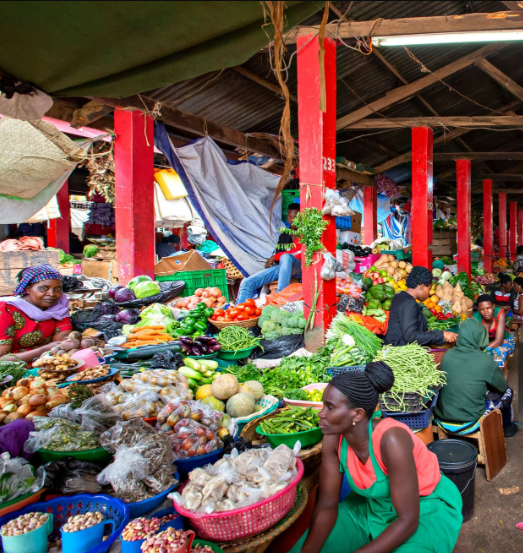How to Bargain at Ugandan Markets Without Offending
Uganda is a country rich in culture, vibrant markets, and warm-hearted people. For visitors and even locals, mastering the art of how to Bargain at Ugandan Markets is an essential skill. However, bargaining isn’t just about getting the lowest price—it’s about engaging respectfully with vendors, understanding local customs, and ensuring that both parties walk away satisfied.
If done poorly, bargaining can come across as rude or disrespectful, potentially souring an otherwise pleasant interaction. But when done right, it can be a fun, engaging, and even rewarding experience. This guide will help you navigate Ugandan markets with confidence, ensuring you get fair prices while maintaining positive relationships with sellers.
Understanding the Culture of Bargaining in Uganda
Before diving into negotiation tactics, it’s important to understand why bargaining is such a key part of Ugandan market culture. Unlike fixed-price stores, markets thrive on haggling. Vendors often set initial prices higher, expecting customers to negotiate. This practice is not about deception—it’s a social interaction, a dance of words where both buyer and seller find common ground.
In Uganda, bargaining is more than just a transaction; it’s a way to build rapport. Many vendors appreciate customers who engage in friendly banter rather than those who demand discounts aggressively. A smile, a joke, or even a few words in the local language (such as Luganda or Swahili) can go a long way in making the process smoother.
Tips to Bargain at Ugandan Markets Without Offending
1. Start with a Friendly Greeting
First impressions matter. Before discussing prices, greet the vendor warmly. A simple “Oli otya?” (How are you? in Luganda) or “Habari?” (How are you? in Swahili) shows respect. Vendors are more likely to give you a fair deal if they feel you’ve acknowledged them as a person rather than just a salesperson.
2. Do Your Research
If you’re unfamiliar with local prices, ask around before committing to a purchase. Check multiple stalls to get an idea of the average cost of an item. This prevents you from overpaying or lowballing to an offensive degree.
3. Let the Vendor Name the First Price
A key rule in bargaining is to avoid making the first offer. Politely ask, “How much is this?” and let the vendor state their price. This gives you a starting point for negotiation. If the price seems too high, don’t react negatively—simply smile and counter with a reasonable figure.
4. Negotiate with Respect, Not Aggression
The tone of your negotiation matters. Instead of saying, “That’s too expensive!” try, “That’s a bit high for me—can we agree on [your price]?” This keeps the conversation friendly. Remember, the goal is a fair deal, not to exploit the seller.
5. Use the Power of Humor
A little humor can ease tensions. If a vendor insists on a high price, you might joke, “Eh! You want to make me broke today?” or “My wallet is crying!” This lightens the mood and makes the vendor more willing to compromise.
6. Be Ready to Walk Away (Politely)
If the price isn’t right, don’t be afraid to walk away—but do so gracefully. Say, “Let me think about it,” or “I’ll come back later.” Often, vendors will call you back with a better offer. However, if you’ve agreed on a price, it’s considered rude to back out.
7. Bundle Items for a Better Deal
Buying multiple items? Use this to your advantage. Ask, “If I take three, how much will you charge me?” Vendors often give discounts for bulk purchases.
8. Know When to Stop Bargaining
Once a fair price is reached, don’t push further. Over-negotiating can be seen as disrespectful, especially if the vendor has already lowered their price significantly.
Common Mistakes to Avoid When You Bargain at Ugandan Markets
1. Offering Ridiculously Low Prices
Starting with an extremely low counteroffer can offend the vendor. If an item is priced at 50,000 UGX, offering 10,000 UGX may come across as dismissive. Instead, propose a realistic reduction (e.g., 35,000 UGX).
2. Showing Frustration or Anger
Markets can be overwhelming, but losing your temper won’t help. Stay calm and patient—vendors respect buyers who handle negotiations gracefully.
3. Ignoring Small Vendors
While it’s tempting to head straight for big stalls, smaller vendors often have unique items and may be more open to bargaining. Plus, supporting local businesses helps the community.
4. Assuming All Markets Are the Same
Different markets have different norms. Tourist-heavy markets (like Owino in Kampala) may have higher starting prices than rural markets. Adjust your approach accordingly.
The Ethical Side of Bargaining
While bargaining is expected, it’s important to remember that many vendors rely on daily sales for survival. If a seller refuses to lower the price significantly, consider whether the difference is worth arguing over. Sometimes, paying a little extra supports someone’s livelihood.
Ask yourself:
Is the vendor in a busy area with high rent?
Are they selling handmade or locally sourced goods?
Would the extra cost make a big difference to me versus them?
If you can afford it, sometimes paying the asking price is a kind gesture.
Bargaining as a Cultural Experience
Learning how to Bargain at Ugandan Markets is more than just saving money—it’s about immersing yourself in Ugandan culture. Each negotiation is a chance to connect with locals, learn their stories, and appreciate their craft.
By approaching bargaining with respect, humor, and fairness, you’ll not only get better deals but also leave a positive impression. And who knows? You might even make a few friends along the way.
So next time you’re at a Ugandan market, embrace the art of bargaining. With these tips, you’ll navigate prices like a pro—without offending a single vendor. Happy shopping!

